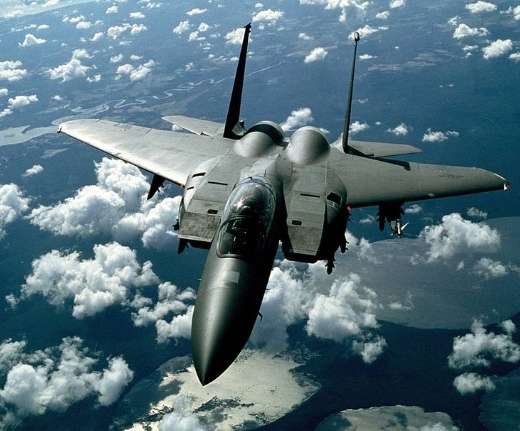US Fighter Jet Downed by Friendly Fire Over Red Sea
The skies above the Red Sea witnessed an unexpected tragedy amidst escalating tensions in the Middle East. An American F/A-18 Hornet fighter jet, operating from the aircraft carrier USS Harry S. Truman, was mistakenly shot down by friendly fire from the USS Gettysburg, a guided missile cruiser. Both crew members of the downed aircraft ejected safely, with one sustaining minor injuries. This incident occurred in the wake of American airstrikes targeting Houthi military assets in Yemen’s capital, Sanaa. The US Central Command confirmed the friendly fire incident, although it remains unclear whether the downed F/A-18 was directly involved in the Yemen strikes. The incident underscores the complex and often precarious nature of military operations in volatile regions, where even sophisticated technology and established protocols can fall prey to human error and miscommunication.
The American airstrikes in Sanaa were part of a broader effort to disrupt Houthi attacks on commercial shipping in crucial maritime passageways, including the Red Sea, the Bab al-Mandeb Strait, and the Gulf of Aden. The US military employed a combination of naval and air assets, including F/A-18 fighter jets, to destroy Houthi drone and missile capabilities. These strikes were justified by the US as necessary measures to protect American and allied vessels transiting these vital waterways, which are essential for global trade and security. The Houthis, a Shia Muslim group backed by Iran, have intensified their maritime attacks in recent months, adding another layer of complexity to the already volatile regional dynamics.
The Houthi attacks on shipping are directly linked to the escalating conflict between Israel and Hamas in Gaza, which erupted in October 2023. The Houthis, claiming solidarity with the Palestinians, have targeted vessels linked to Israel, the United States, and the United Kingdom. These attacks, involving missiles and drones, have resulted in damage and even the sinking of several ships, raising concerns about the safety of maritime navigation in the region. The Houthis’ actions demonstrate their willingness to expand the conflict beyond the Gaza Strip and draw in international actors, further destabilizing an already precarious situation.
In response to the escalating Houthi threat, the United States, the United Kingdom, and other allied nations initiated “Operation Prosperity Guardian,” a joint military effort aimed at safeguarding shipping lanes in the region. This operation reflects the growing international concern over the disruption of maritime commerce and the potential for further escalation in the Red Sea and surrounding waters. The international community recognizes the importance of maintaining freedom of navigation and preventing the Houthis from further jeopardizing global trade and security. The multifaceted nature of the operation highlights the commitment to addressing the complex challenges posed by the Houthi threat.
Adding to the escalating tensions, a Houthi missile recently struck a park in Tel Aviv, injuring several civilians. Israel’s attempt to intercept the missile was unsuccessful, marking a concerning development in the conflict. This incident demonstrates the increasing range and sophistication of Houthi weaponry, and their ability to project power beyond Yemen’s borders. The attack on Israeli soil further underscores the interconnectedness of the various conflicts in the region and the potential for them to escalate rapidly. The failure of Israeli defenses also highlights the evolving nature of the threat and the need for enhanced countermeasures.
Israel responded swiftly to the Tel Aviv attack with retaliatory airstrikes targeting Houthi military infrastructure, including ports and energy facilities in Yemen. The Houthis reported casualties and reiterated their commitment to continue attacks until the conflict in Gaza ceases. This cycle of violence demonstrates the precarious nature of the situation and the potential for further escalation. The continued exchange of attacks underscores the urgent need for a diplomatic solution to the underlying conflicts that fuel the violence. The international community must engage all parties in a concerted effort to de-escalate tensions and prevent a wider regional conflagration. The United States has reaffirmed its commitment to defending itself and its allies, highlighting the potential for greater involvement in the conflict if the situation continues to deteriorate.
Share this content:












Post Comment